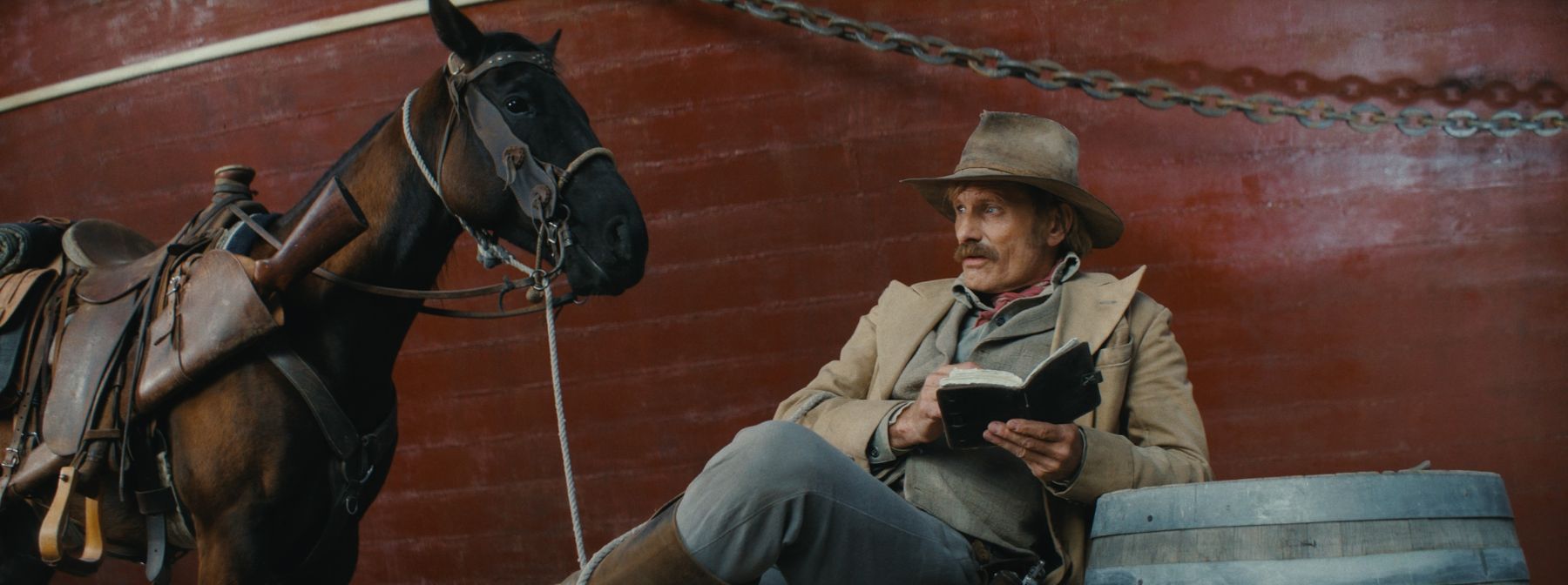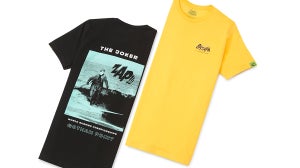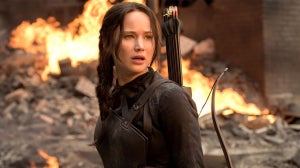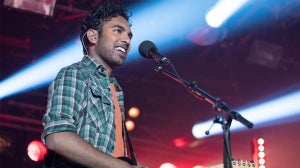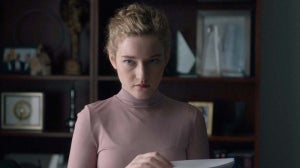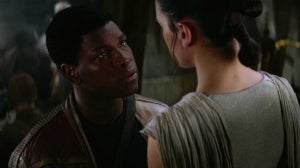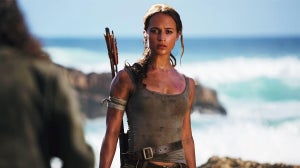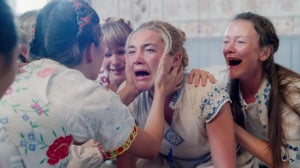
“This movie looks more expensive than it was”, writer/director/star Viggo Mortensen told Zavvi. “We didn’t have an epic budget or a lot of time to make it – just 26 days in Mexico and four more in Canada, which isn’t much at all for an ambitious, sweeping epic.”
However, this didn’t deter Mortensen from ensuring that every last frame was packed with authentic period details, which proved tricky for one blink-and-you’ll-miss-it moment in a fantasy sequence he was adamant to include.
“There’s a scene with a knight, and everything was perfect, but there was one detail missing: I wanted to show him with a medieval sword. But I didn’t like any of the prop swords the team were showing me, and then I realised I had the perfect one at home…”
Yes, eagle-eyed viewers will be able to spot Andúril – Aragorn’s sword from Lord Of The Rings – in frame for just four seconds of The Dead Don’t Hurt, but it almost wasn’t to be. Peter Jackson was initially worried this little piece of Middle-earth would draw attention to itself, and Mortensen had to give the director his word that casual audiences wouldn’t be able to spot it.
“He was asking me: “Is this a movie about a sword, is the sword essential?” and I made it clear that only the most die-hard Tolkien fan would be able to point it out. Which is why, if you're a real Lord of the Rings fan, I think you ought to go see this on a big screen, so you can really, really see the sword – it was sort of accidental how it found its way in, but I’m glad it did.”
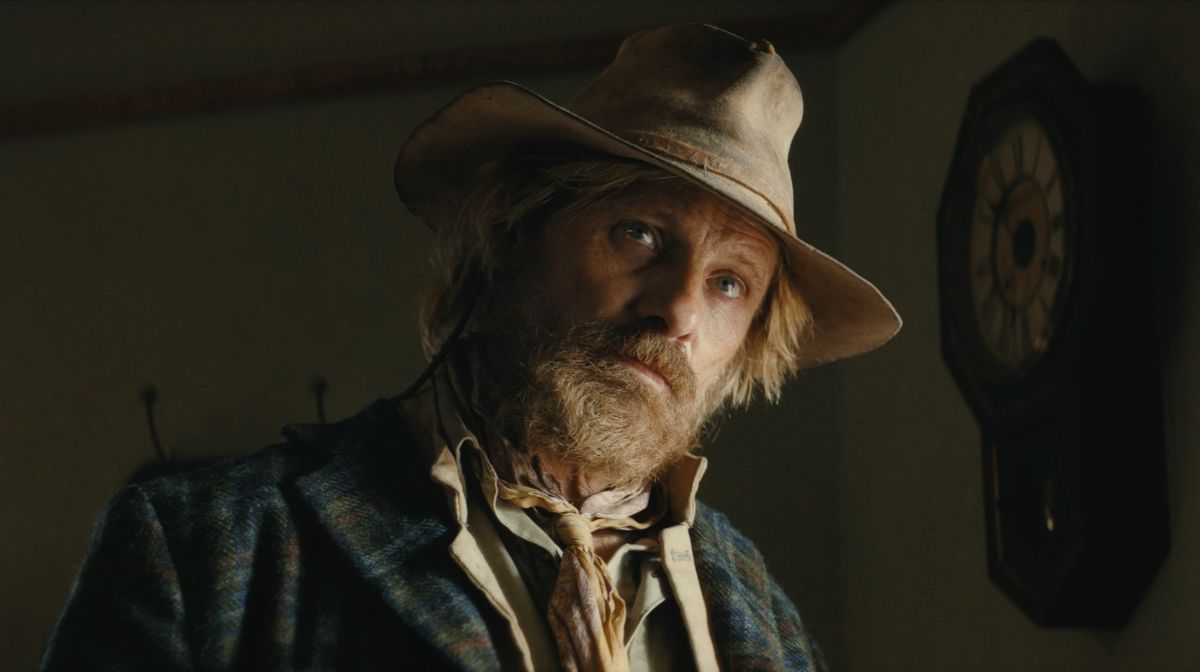
The other happy accident with the movie was Mortensen agreeing to star as Holger Olsen, the male lead of this romantic western, who leaves partner Vivienne Le Coudy (the always fantastic Vicky Krieps) to fend for herself in a lawless town when he goes to fight with the Unionists in the Civil War.
Although he acted in his directorial debut, 2020’s Falling, his initial plan was to remain strictly behind the camera this time – but divine intervention struck, and each actor he cast had to drop out for various reasons.
“There were several actors who loved the story, loved the idea of working with Vicky – I mean, who wouldn’t? – and were especially desperate to be in a western, considering they don’t make many of them anymore. But we got to the stage where we had cast every other role, had a crew and locations in place, and realised that we’d spent a lot of time and money preparing this, so maybe we could rewrite the character to fit me.

“I knew the character well already, I just adapted him to be my age and Danish! He was always going to be Scandinavian, but I made him Danish because that's something I can immediately understand; I speak the language and I understand Danish culture, history and humour. There’s a distinctively Danish clumsiness to him.”
However, the story undoubtedly belongs to Vivienne, a character loosely inspired by Mortensen’s mother, who passed away in 2015. The film is dedicated to her memory.
“I didn't originally intend to make a western; I started writing a story about a woman named Vivienne, who was inspired by the personality of my mother. I wanted to write about a woman who’s very much her own person, an independent thinker, an adventurer, and someone curious about other cultures, but I didn’t have a concept of what the drama in this character’s life could be.
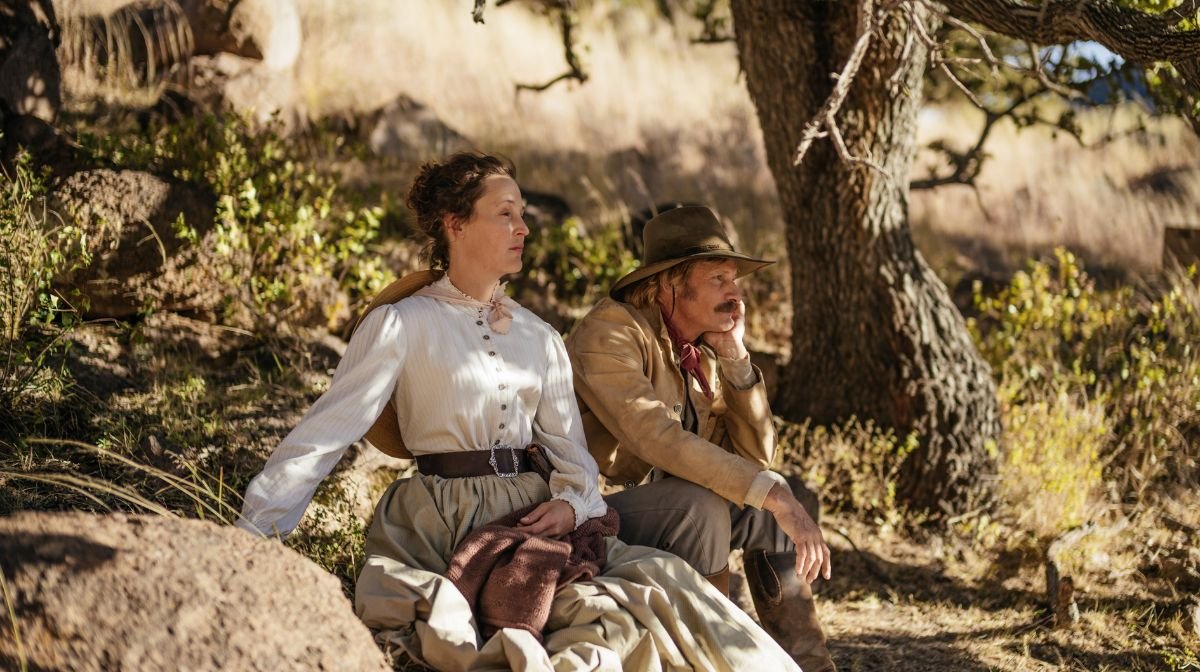
“This is when I had the idea to put her on the western frontier in the 19th century, where she’d have more obstacles. It's going to be a bigger challenge for her in a society dominated by a few powerful, unscrupulous men who are not against using violence to achieve their goals – and just like that, it became a western!”
The genre is dear to the director, who loved them so much growing up they inspired him to learn horse riding. Of all the intense historical research the team did to recreate the period, nothing proved more important to him than getting the portrayal of horsemanship right.
“It’s not something everybody will notice, but the illusion is always ruined for me when I see someone appear uncomfortable when approaching a horse – before they even ride it, you can tell how comfortable an actor is to be mounting one. Making it look natural is the most crucial thing, as that was the primary mode of transport, either riding one or travelling in a horse drawn cart or carriage.
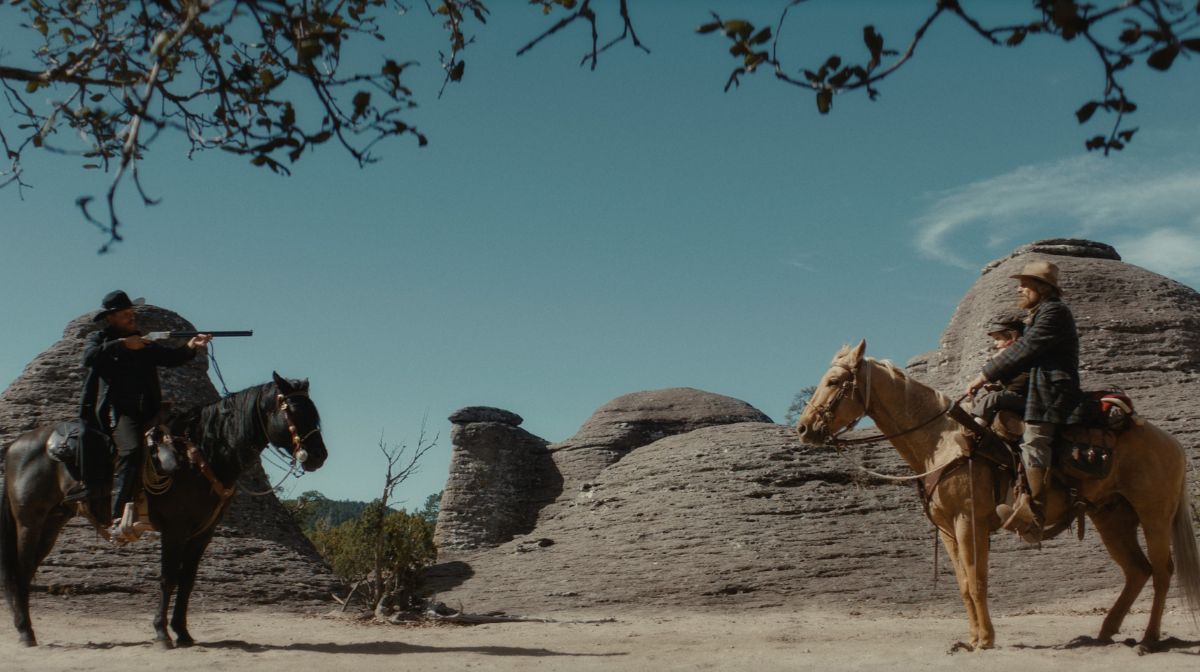
“I’ve been riding since I was a little kid, I can tell if someone's not comfortable around a horse, and I needed to make sure the cast looked authentic when doing it.”
There were other small details that were crucial to the historical accuracy of the film, which many Hollywood westerns overlook entirely.
“It was also important to be historically accurate in terms of representing the diversity even in a small frontier town of the population. If it's a town in the southwest, then 1861 is little more than a dozen years after it was Mexico, so you see a lot of adobe buildings, and the newer ones are wood frame Anglo Saxon constructions of the invaders.
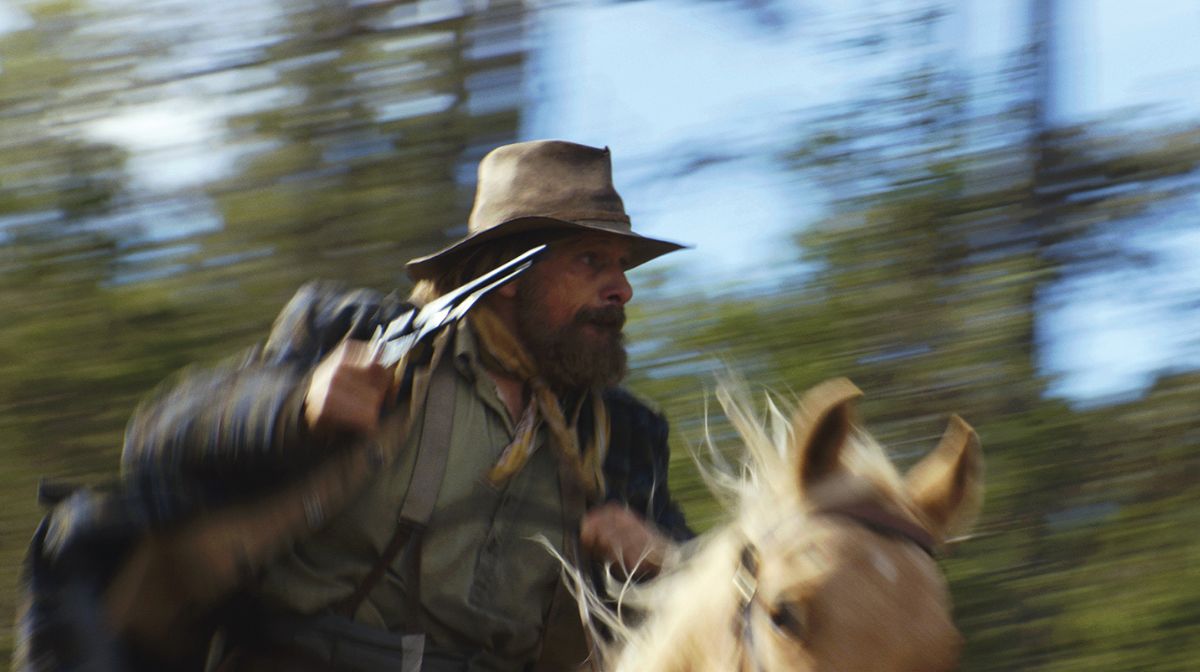
“There’s a cultural, ethnic and linguistic diversity in this town, and our lead characters don't speak English as their first language. It makes this different, but I wanted to make sure I told the story in a manner that respects the traditions of the classic western.”
Krieps first broke through in Paul Thomas Anderson’s darkly comic fashion world romance Phantom Thread, and has appeared in several period pieces since. For Mortensen, the ease with which she can slot into various historical settings was one of the key reasons she was perfect for this role.
“Vicky is a powerful performer, and one who would fit naturally in this period. But she also seems to have an inner strength, an ability to transmit a lot of feeling, a lot of thought, even in silence – she was the strong woman who would make this film work, and she surpassed all the hopes I had for this character.
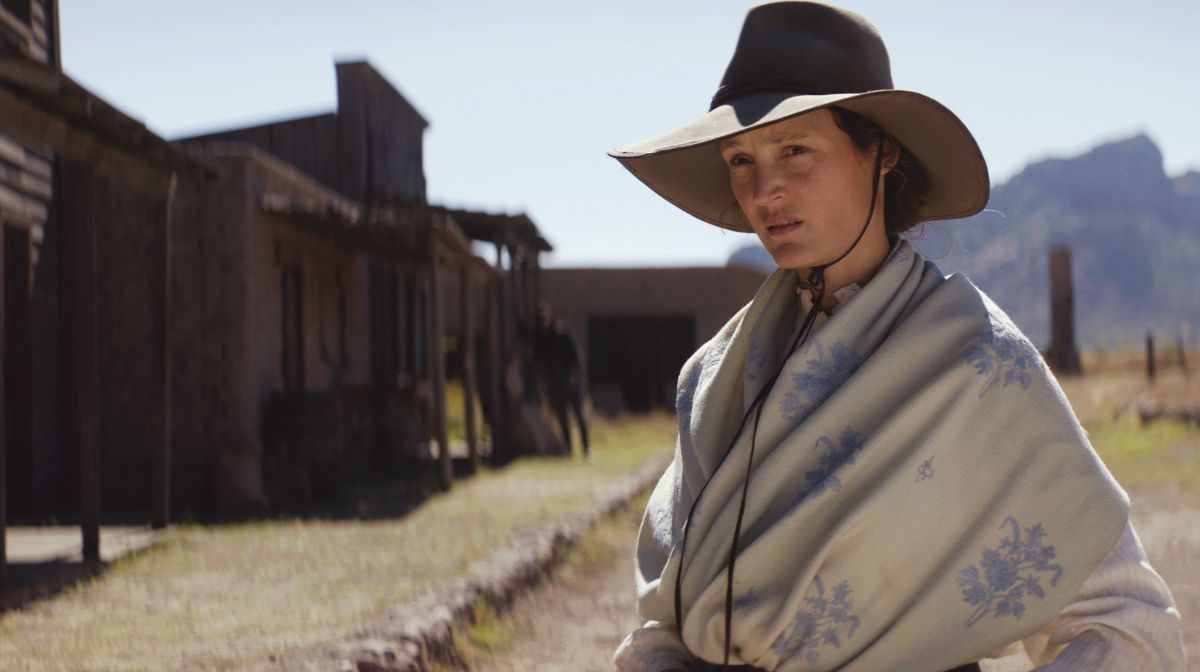
“My aim was to explore some things that I hadn't seen in westerns, and there's not that many ordinary women who are the central character. There have been some extraordinary women being ranch owners, or running whorehouses, like Barbara Stanwyck in 40 Guns or The Furies – but I’ve never seen an ordinary woman like Vivienne have her story told, and there are countless stories like this from this era that we’ve never heard.
“I wanted to explore what happens to women like Vivienne when their sons go away, or their brothers, or as in the case of our story, their male partner goes off to fight. What are the mental, physical and emotional consequences for them?
“That’s not something I'd seen in Westerns before, and I don't remember seeing it too often, anywhere, really, in movies.”
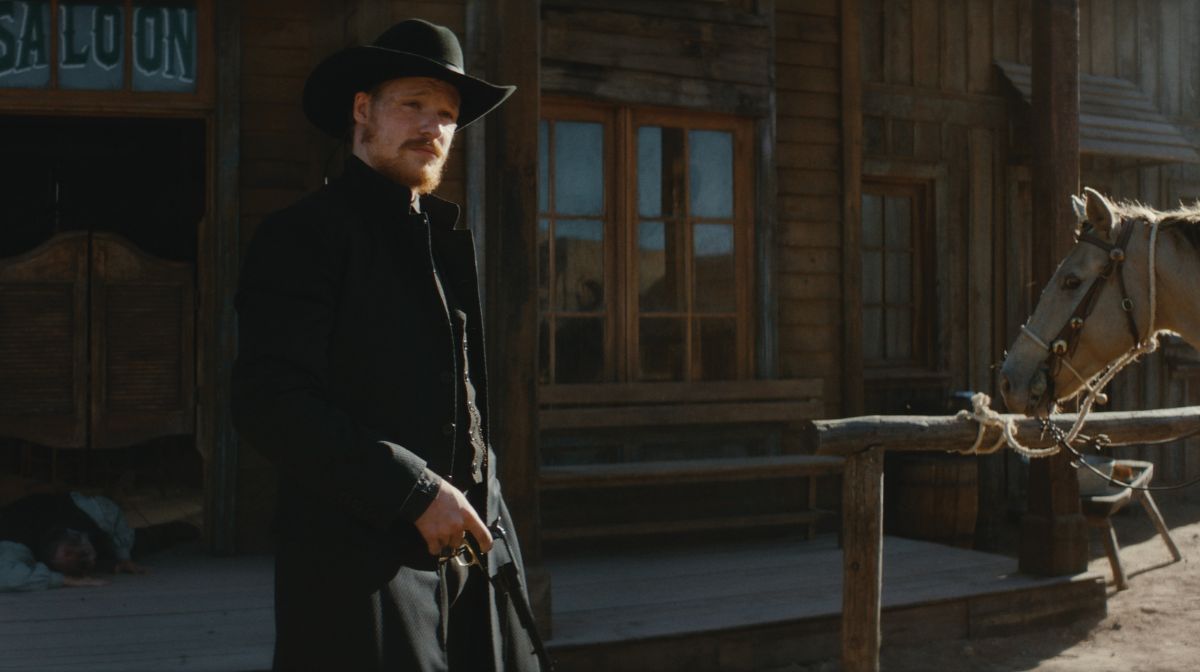
After following up a small scale family drama with a western, I was left wondering whether Mortensen would go even grander in scope with his next movie. Andy Serkis is returning to Middle-earth with 2026’s The Hunt For Gollum – which he will also direct – could Mortensen similarly take the reigns of an Aragorn story, something he’s previously been open to making?
“Well, anything’s possible!” he laughed. “So far, I’ve directed two things I've written, and I have several more unproduced scripts I’ve written over the years, one of which is an adaptation of a novel, so I’d be open to adapting more work – but I’ll be honest, I’ve never thought of directing an Aragorn movie, it’s never once occurred to me. I don’t even know what story I would tell!”
The Dead Don’t Hurt is in UK cinemas now.
